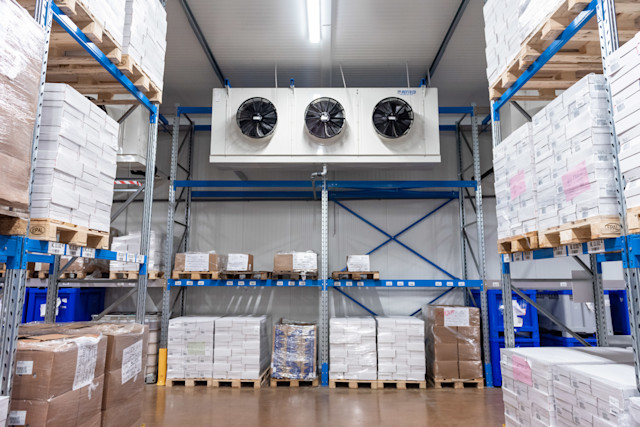12th November 2024
Food Preservation and Quality

In the context of preserving fresh and frozen goods, precise temperature control is crucial to prevent the development of pathogenic bacteria and preserve the nutritional and organoleptic qualities of the food.
Index:
1. Importance of temperature control
2. Advanced Technologies for Preservation
3. Best Practices for Preservation
Importance of Temperature Control
Temperature plays a fundamental role in preserving fresh and frozen foods. For fresh goods such as fruits, vegetables, meat, and dairy products, it's essential to maintain a consistently low temperature, just above freezing, to slow down natural decomposition and microbial proliferation. For frozen foods, it's crucial to avoid temperature fluctuations that could cause product quality deterioration.
Advanced Technologies for Preservation
Modern technologies offer advanced solutions for monitoring and regulating temperatures precisely and consistently. State-of-the-art refrigeration and freezing systems are equipped with digital controls that allow for setting and maintaining the desired temperature, with integrated alarms to alert in case of deviations. Modern cold chain logistics also include real-time tracking, enabling optimal management of the cold chain during transportation and storage.
Best Practices for Preservation
To maximize the freshness and safety of fresh and frozen foods, it's important to adopt some best practices:
Regular equipment checks: Ensure refrigeration and freezing systems are functioning correctly and are maintained regularly.
Respect for the cold chain: Avoid interruptions in the cold chain from origin to consumer.
Staff training: Ensure all personnel involved in food handling are adequately trained in safe preservation practices.
Questions & Answers
Why does temperature damage food?
Fluctuations or inappropriate levels of temperature can accelerate microbiological and chemical processes leading to food deterioration. Too high a temperature can promote the growth of harmful bacteria, while too low can cause physical damage such as freezer burn in frozen products.
Why is food preservation important?
Proper food preservation is essential to maintain their safety, quality, and nutritional value. Preventing deterioration and microbiological contamination is crucial not only to ensure food safety but also to reduce food waste and conserve resources.
Why is it important to store food in the refrigerator while respecting the recommended temperatures for each?
Each type of food has specific temperature requirements that optimize preservation and minimize the risks of deterioration or pathogen development. Respecting the recommended temperatures for refrigeration helps maintain the integrity and safety of foods, prolonging their shelf life and preserving their freshness.
Maintain the quality and safety of your fresh and frozen goods with our cutting-edge refrigeration solutions. Contact us to learn more and request a personalized quote!